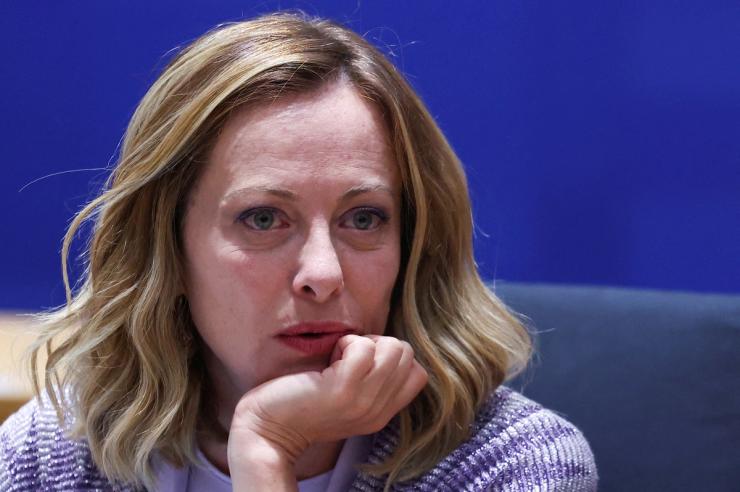The News
EU leaders struck a deal to secure Ursula von der Leyen a second five-year term as president of the European Commission on Thursday, but a surprise abstention from Italy’s far-right Prime Minister Giorgia Meloni threatens to derail her chance of winning final approval from the European Parliament.
Meloni’s snub comes a week after she was excluded from talks between six leaders on names to put forward for the EU’s top jobs — despite her right-wing European Conservatives and Reformists bloc becoming the third-largest party in the European Parliament following elections earlier this month.
Von der Leyen needs to secure at least 361 votes out of 720 in the European Parliament in a ballot scheduled for the week of July 15 to confirm her role.
SIGNALS
Meloni may still be kingmaker
Von der Leyen clinched the Commission presidency by just nine votes in 2019, but she may be squeezed further this time: Insiders expect at least 10% of her coalition bloc to either rebel or abstain in the secret ballot, Politico reported. That means Meloni could play kingmaker by giving von der Leyen a significant number of MEP votes, though choosing the Italian nationalist over the Greens would risk hurting von der Leyen’s chances of securing liberal and center-left support, The Parliament noted. Meanwhile, instability across the EU could act as a “disciplining force” on MEPs harboring second thoughts about another von der Leyen term, who may not want to create another political crisis by rejecting her, the director of the Atlantic Council’s Europe Center argued.
Italian PM’s European allies could be splintering
Meloni may have abstained from nominating von der Leyen to reflect splits within her own governing coalition, Euronews reported. And with two new right-wing formations rumored to be in the making, the Italian firebrand leader will need to prevent her European Conservatives and Reformists bloc from fragmenting during crunch negotiations next week if she wants to influence the EU’s agenda going forward on issues such as migration and green policies. However, the European Parliament’s far-right wing remains divided over support for Ukraine as well as fiscal responsibilities, and its MEPs have in the past shown low engagement in the Parliament, often failing to show up for votes, Chatham House noted.



